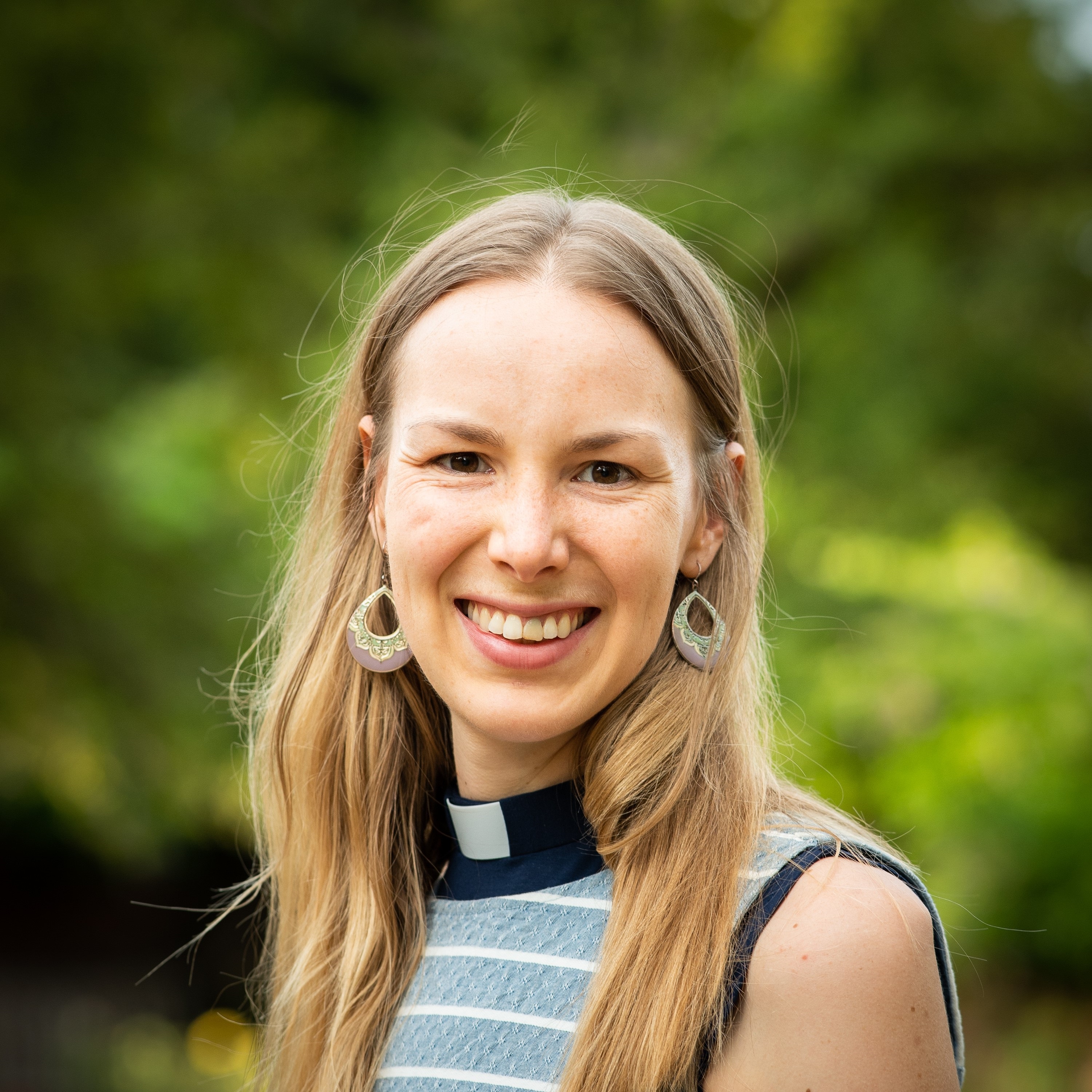The Revd Ruth Sheldon was a curate at St Nicholas' Church, Thames Ditton until recently, and is now an associate minister at St Mary of Bethany, Woking.
She has shared her experience of leading safeguarding ministry at her previous church.
During her time at St Nicholas', Ruth led the church's Community Hub which involved her and church volunteers supporting people with a multitude of complex needs. It was this community outreach that spurred her to put safeguarding at the heart of all they do.

What does the term safeguarding mean to you? How does it align with your Christian faith and values?
It’s ultimately about protecting those who are vulnerable and who are a risk to themselves and to others-sometimes because of a mental health illness. It is also about creating an environment that is conducive to people feeling safe.
There is a general perception that safeguarding is about disclosure and reporting, but there is so much more to it. As a Christian, I recognise that God showed compassion to the marginalised in society. I too want to show that compassion to the vulnerable and help them flourish and live a full life. Through our Community Hub, we get to know people in our parish and what’s going on in their lives- they trust us. That’s why we want to walk alongside them in their time of need not just pass them onto an agency.
I have come to realise that safeguarding is not just about individual incidents. Some people who are vulnerable because of mental ill health or addiction or financial issues have so many risk factors and complexities. That means that you won’t be able to deal with their problems at once. It is more of an ongoing journey.
What steps did you take in your church to create a positive and proactive approach to safeguarding?
I led the ministry for our community hub, and I helped shift people’s mindset, so they didn’t see safeguarding training as a tick box exercise, they understood that they needed this information to support the vulnerable people they came into contact with.
As well as simply reminding people of the basics and record keeping, I used communication to get across a consistent message that safeguarding was not a theoretical issue. Given the vulnerabilities in the community, including in our congregation, it is not a matter of ‘if’ a safeguarding risk comes up, but a matter or ‘when’. I used impactful statistics on the prevalence of abuse to help our volunteers and those in our church understand the importance of good safeguarding practice. The most impactful training I had, was when the trainer simply used well known examples of what can go wrong when correct procedure isn’t followed. For example, I’ve used the horrific case of the Soham murders to demonstrate the importance of DBS checks.
We also tried to make safeguarding training as accessible as possible, so offering more in-person sessions to help people who aren’t as comfortable using technology.
How have you found working with the Diocesan Safeguarding Team?
When I was very new in my curacy, I was confronted with an issue when my incumbent was away. I was faced with an individual with complex needs who was very vulnerable. I admittedly panicked as I’d never faced anything like this. Jackie (from the diocesan team) was very supportive and talked me through the practical steps I needed to take, and which agencies I needed to contact and signpost to. She also helped me understand where it was ok for me to step back, safe in the knowledge that I had done everything in my power to help but professional agencies then need to do their job. These aren’t problems that can solved overnight in many cases. Some individuals have layers of complex problems and risks.
How do you think attitudes and approaches to safeguarding have changed over the course of your ministry?
My own perception has changed since I started the role. When I first joined as a curate in leafy Thames Ditton, I never imagined these social issues existed within the community. Afterall the area is the top percentile of wealth in the country with only 3% social housing. But vulnerable people can be found in every society. We are an active church embedded in our community, so safeguarding is always going to come up, and we need to be ready to deal with it.
The Makin Review has made it easier to clearly demonstrate how badly victims can be let down when people don’t take responsibility for safeguarding. There is much more understanding now of how important the issue is and how we all need to play a role in keeping people safe.